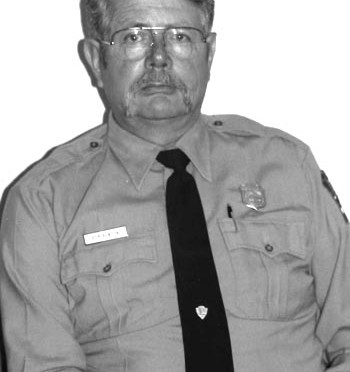Yes.
That did a couple of things. Number one, it gave us a chance to look at him, and [number two] it gave him a chance to look at us. That marriage, otherwise, might never have happened because Scott did not have the opportunity, in his previous chief job, to really excel. It wasn’t that he wasn’t this good. He was. It’s just that the challenges were not at Coulee Dam like they were at Crater Lake. Similarly, after a series of rather disastrous chief rangers, in terms of success when I was there, Buckingham has brought a different dimension. George doesn’t get rattled and he’s one of the few people that can really draw a line and say, “I’m sorry, this is where it is.” When you really think about it, Gail Menard, George Buckingham, Kent, and Scott Ruesch were all people that could stand up to me and say, “Benton, you’ re wrong. And did. Quite frequently, usually not in public. But they were all capable and in fact did that. When you’re dealing with a personality like I have, you have to have people who can do that.
And so you must look at a number of different dimensions in hiring division chiefs?
Oh yes. Oh boy. You really do. They’ve got to be, and you look at all of them, movers and shakers. The people that really made it happen at Crater Lake were always that kind of person. Gail Menard was extremely well-liked. I’ve never known an administrative officer to be as well-liked as Gail, not only at Crater Lake, but in every assignment she was in.
I wanted to ask you about the types of people that applied and/or successful applicants. Were they from smaller situations and they were looking for a challenge like Crater Lake on their way progressing upward?
They weren’t always from small areas. Gail was, but Ruesch had worked the big areas. George had, during his career, worked big areas. Kent had done things like Philadelphia (63). But I think they were all looking at someplace where they could do something. Were you ever aware of some of the things that we did in recruiting people?


